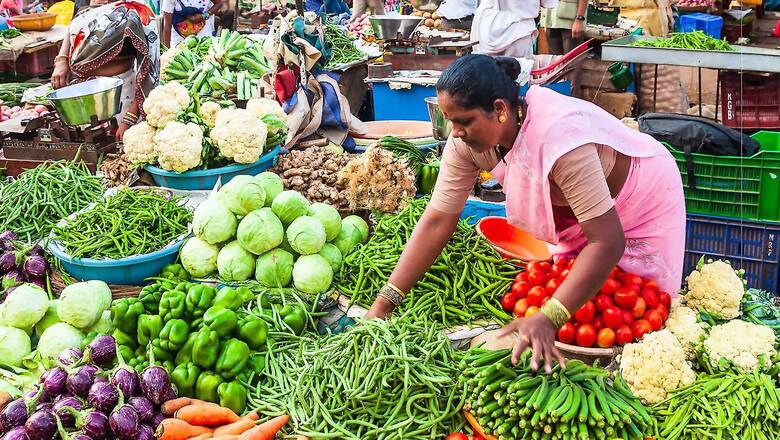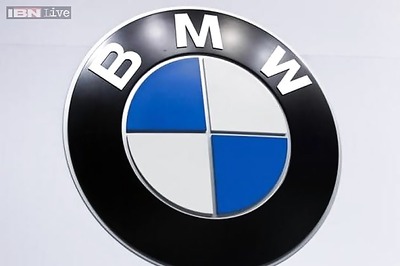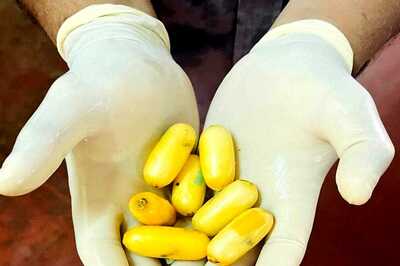
views
Retail inflation slightly eased to 7.04 per cent in May, according to the data released by the ministry of statistics and programme implementation (MoSPI) on Monday. India’s headline inflation touched near-eight-year high of 7.79 per cent in April. A sharp drop in the fuel prices after the reduction in excise duty had significantly contributed to bring down the food prices last month, believed experts. The Consumer Price Index (CPI) inflation in May remained above the upper tolerance limit of Reserve Bank of India (RBI), for the fifth consecutive month.
Core CPI inflation fell to 6.2 per cent in May. It stood at 7 per cent in April. Food inflation marginally lowered to 7.97 per cent in May, compared to 8.38 per cent in April. Fuel and light inflation dropped to 9.54 per cent in May, against 10.80 per cent in April. Similarly clothing and footwear inflation came down to 8.85 per cent in May, compared to 9.85 per cent in April. On the other hand, prices of vegetable remained high during the month of May. Vegetable inflation jumped to 18.26 per cent in May, from 15.41 per cent in April.
“India’s consumer inflation moderated to 7 per cent supported by the government measures undertaken to curb domestic fuel and food prices in May 2022. However, the inflation levels are still above the RBIs’ upper limit of 6 per cent. The narrowing gap between Wholesale Price Index (WPI) and Consumer Price Index (CPI) further highlights the pass through of input costs rise from producers to consumers; as evident in elevated core inflation of 6.2 per cent; which is still high; albeit with slight moderation,” said Vivek Rathi, director-research Knight Frank India.
Commenting on whether inflation to cool down in near future, Rathi mentioned, “In the coming months, the spillovers from global commodity and food prices would continue to add stress to domestic prices. We thus, do not see India’s inflation cooling down in the near term and in such a scenario maintaining the strength of domestic demand will be crucial from policy perspective.”
To tame the soaring inflation in the country, the Reserve Bank of India had increased the repo rate by 50 basis points in June Monetary Policy Committee (MPC) meeting. RBI raised its inflation forecast for FY23 to 6.7 per cent. The central bank also increased retail inflation projection to 7.5 per cent for April-June quarter; 7.4 per cent for July to September quarter; 6.2 per cent for October to December quarter and 5.8 per cent for January to March quarter of FY23.
Will Food Prices Come Down in the Coming Months?
“The high frequency mandi prices so far depict some respite in sequential gains. On the other hand, the cereal prices have remained contained helped by policy intervention to regulate exports, which along with modest MSP hikes, should cap the potential for sharp upsides in the price of the staples. This along with the some cuts in import duties on a few imported food products, moderation in vegetable oil prices globally should help ease domestic edible oil prices months ahead,” said Madhavi Arora, lead economist, Emkay Global Financial Services.
Read all the Latest News , Breaking News , watch Top Videos and Live TV here.




















Comments
0 comment